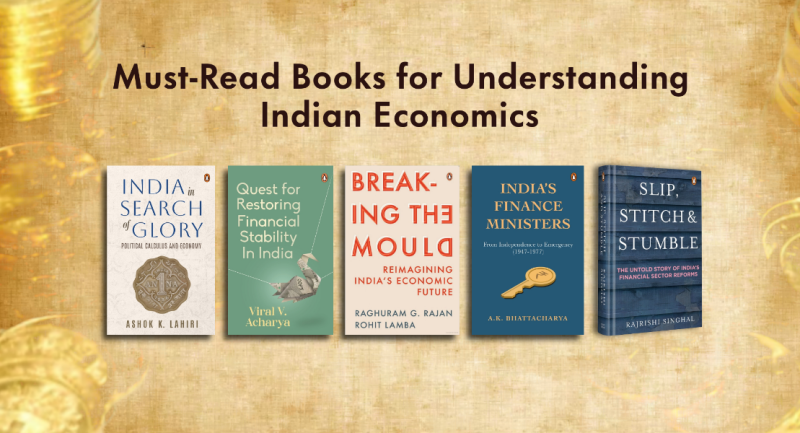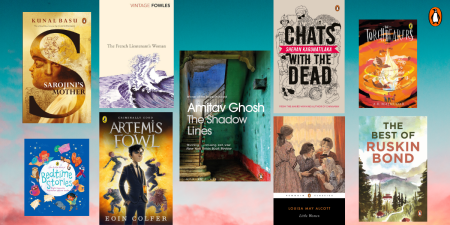
Penguin India continues to shine on the literary stage with these 6 books making their way onto the longlists for the 2023 JCB Prize for Literature and the Gaja Capital Business Book Prize. Following the groundbreaking International Booker Prize nomination for Perumal Murugan’s Pyre, this is another feather in Penguin India’s cap!
Explore these captivating narratives and thought-provoking ideas that have earned these titles their well-deserved spots on these prestigious lists.
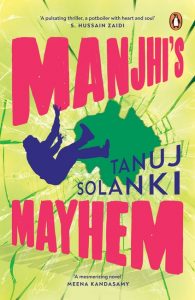
Manjhi’s Mayhem
Tanuj Solanki
Sewaram Manjhi works as a security guard outside a posh Bombay café. On the surface, he’s not unlike millions of invisible Indians who make the city tick, but there is a difference: he holds rage in his heart, and he will go to any length to snatch a chunk of the good life. Enter Santosh, hostess at the restaurant across the street. A damsel in distress, Santosh has a strange request for Manjhi, and far be it from him to say no. What follows is tabaahi – mayhem – as Manjhi finds himself caught in a web of lies and deceit, and on the trail of a bag full of money that will lead to broken noses, bloody heads, sex, seduction, and murder. If he succeeds, Manjhi might finally discover what it means to be in control of one’s destiny in a land where birth determines fate.
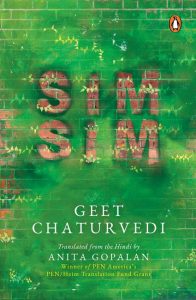
Simsim
Geet Chaturvedi
Poignantly written by Geet Chaturvedi, a major Hindi writer, and beautifully translated by Anita Gopalan, Simsim is a struggle between memory, imagination, and reality- an exquisitely crafted book that fuses the voices of remarkable yet relatable characters to weave a tale of seeking happiness, fulfilling passion, and reconciling with loss. Simsim is charming, and wonderfully original.

Fire Bird
Perumal Murugan
Fire Bird is a masterfully crafted tale of one man’s search for the elusive concept of permanence. Muthu has his world turned upside down when his father divides the family land, leaving him with practically nothing and causing irreparable damage to his family’s bonds. Through the unscrupulous actions of his once-revered eldest brother, Muthu is forced to leave his once-perfect world behind and seek out a new life for himself, his wife and his children.
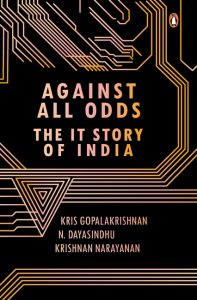
Against All Odds
S. ‘Kris’ Gopalakrishnan, N. Dayasindhu, Krishnan Narayanan
Against All Odds: The IT Story of India is an insider’s account and an anecdote-rich history of Indian IT over the last six decades. It taps into the first-hand experiences of Kris Gopalakrishnan and fifty other stalwarts
who built and shaped the IT industry. This is a tale of persistence and resilience, of foresight, of planning and being ready when luck knocks on the door, of a spirit of adventure and, above all, of an abiding sense of faith in technology and the belief that it would do good for India. It is a tale of triumph, and the best is yet to come!
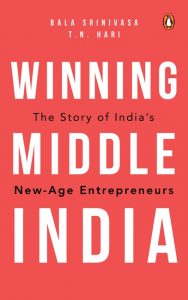
Winning Middle India
T.N. Hari, Bala Srinivasa
Is there a fundamental new catalyst that can significantly enhance access, affordability and quality of products and services to hundreds of millions of Indians? This catalyst is in the form of a new generation of start-up founders who are leveraging technology platforms, smartphone access, and rapid digitization of the Indian consumer. These young founders don’t carry the baggage of the past and are attracted to the opportunity of breaking open the massive market of Middle India-the next 400-500M Indians just below the top of the pyramid. This book is about this new and powerful force of change blowing across India-what it takes to harness this and reshape the destiny of this country.
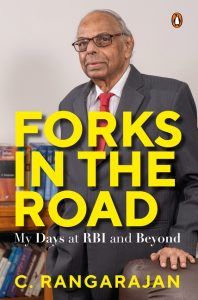
Forks in the Road
C. Rangarajan
In Forks in the Road, the veteran economist and policymaker provides a captivating account of his professional journey, starting with his purely accidental entry into the RBI in 1982. Rangarajan, regarded as one of the tallest figures in the history of India’s economic reforms, provides crucial insights into the role he played as part of the team which initiated far-reaching reforms in India’s economy in the early 1990s. The path-breaking reforms that he implemented during his tenure as governor of RBI included deregulation of interest rates, strengthening of the banking system by a gradual tightening of prudential norms, creation and nurturing of financial markets, giving them depth and vibrancy, shifting to market-determined exchange rates, making the rupee convertible on the current account and the cessation of automatic monetization of budget deficit.







